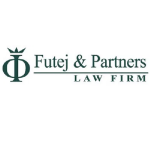In just a matter of minutes, anyone can use the internet to download or stream copyrighted content for free. Unfortunately, most of that content is posted and distributed without the consent of the author – the exclusive holder of the rights to the work. In other words, it is illegal. The practice of accessing copyright-protected work in just a few minutes, without paying for it, is very widespread.
The main problem with curbing the practice is that it is quite difficult to track down and identify the offenders, because they remain well-hidden and frequently change the equipment they use for their activity. That leaves putting the onus on the specific actions of parties who themselves have not participated in any infringement but who do have a certain indirect ability to influence such infringements. In legal theory, the liability of these parties is known as liability for third-party content, a situation frequently encountered on the internet and encompassing the most common services, such as the operation of digital content storage sites, webhosting, domain name authority, and provision of internet services.
Numerous EU states are addressing this situation by taking legal steps, not in respect of the actual offenders, but rather against internet service providers. Measures typically take the form of injunctions or emergency orders issued against internet service providers by the competent courts. These injunctions and orders require the providers to block the websites, servers and storage sites through which the copyright-protected work is being distributed without the author's consent, in other words, illegally. Take for example the Dutch case of Brein v Ziggo and Brein v XS4ALL INTERNET BV, where the court ordered the blocking of a website called The Pirate Bay. The court held that although The Pirate Bay was not directly infringing copyrights, but was nonetheless acting illegally because it was systematically allowing its users to infringe copyrights. In the Austrian case of Allegro Filmproduktions GmbH v A1 Telekom Austria AG et al, the court issued a preliminary injunction ordering the defendant, an internet service provider, to refrain from providing internet services to specified websites that made available audio-visual works, in whole or in part, to which the applicant exercised the rights. Court of Justice of the European Union case law is moving in the same direction.
There has not yet been a case in the Slovak Republic where an order has been issued to an internet service provider to block a website; we believe, however, that this is possible under Slovak law. Slovak law provides that the public distribution of an original piece of work or the communication to the public of a piece of work on the internet for which the author or right-holder has not granted permission is an infringement of both the Slovak Copyright Act and the Slovak Criminal Code, giving rise to civil and criminal liability. The author, or the holder of the exclusive rights to a piece of work, can seek protection from the infringement in the form of an order to refrain from further infringement of the copyright, to remedy the consequences of infringement and even to provide compensation for loss and/or non-material damage.
However, there are those who take a negative view of this manner of imposing obligations on internet service providers. Some in professional circles have pointed out that imposing the obligation on internet service providers to block websites conflicts with the principle of freedom to conduct a business as well as the free dissemination of information. Each case must therefore be thoroughly, individually reviewed as to whether the interference with these rights is necessary to protect a copyright and whether the protection afforded to the copyright warrants the potential interference with the rights of third parties; the nature and intensity of that interference should be reviewed as well.
In that regard, we would point out that taking legal steps against persons who only provide a service through which an infringement of rights occurs is practical. This is in part because the break-neck speed at which the internet, as a media, has expanded in recent years has allowed the internet to operate so freely as to make regulation of it near impossible. It is therefore expedient for judicial practice, and ultimately legislation, to enshrine mechanisms by which regulation will be made possible at least to an extent that will effectively prevent the infringement of the rights of others. This again raises the question of the proportionality of the interventions, restrictions and regulation.

|

|
Jana Mikušová |
Daniel Futej |


